Looking to attract high-quality, long-term tenants to your condo? Consider opening your home up to more animal-loving renters and transforming your unit into a warm and welcoming pet-friendly rental property.
The number of pet parents in the Philippines increased dramatically during the COVID-19 pandemic lockdowns due to people’s need for friendship and companionship amidst isolating times. The demand for animal-friendly housing increased as well - leading to a greater need for condo communities catering to pet owners in rental properties.
As a condo owner, you may be thinking of leasing your property out to ideal clients. These ideal clients, on the other hand, may be looking for homes that can accommodate them and their beloved animal companions.

Photo courtesy of Sarah Chai via Pexels
Whether you’re renting your property out temporarily, selling it, or even turning it over to DMCI Homes’ Home Ready program, you’ll want to find great clients that can take care of your unit while they bring in their furry friends too. To welcome such high-quality renters into your home, you’ll need advice to understand your development’s rules, establish your own policies, and find a great tenant for all your leasing needs.
In need of a comprehensive guide to create a pet-friendly condo property? Take a look at this guide by DMCI Homes to enhance the appeal of your rental, attract responsible tenants, and foster a great relationship with your residents and their fur babies.
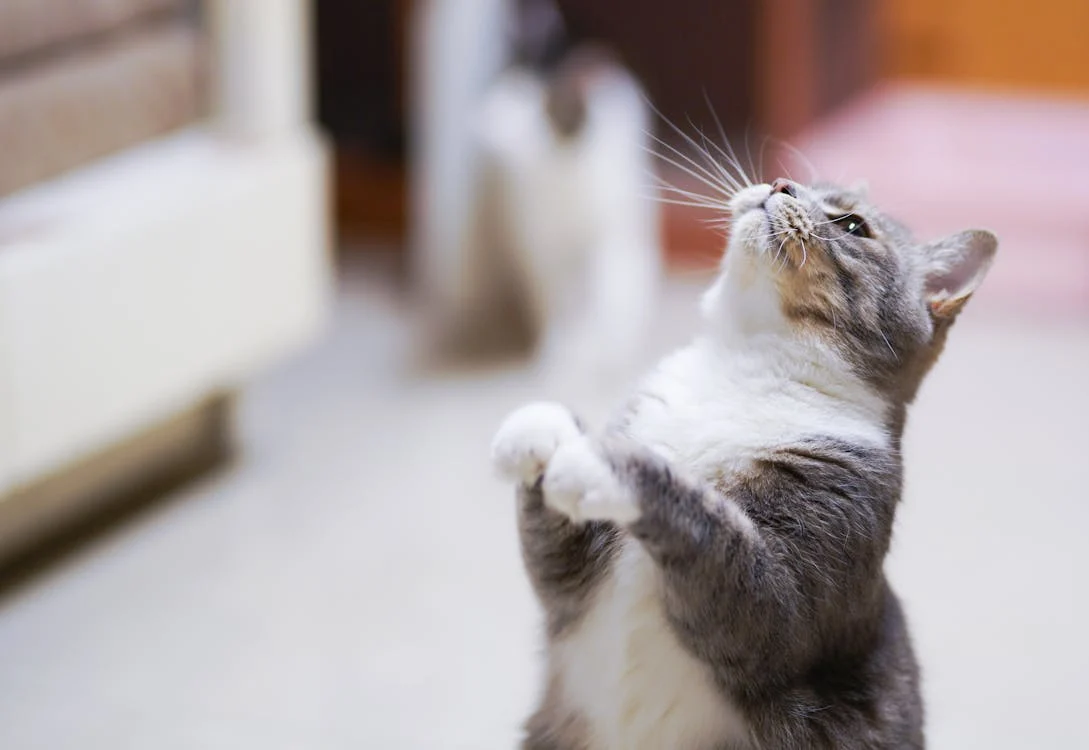
Photo courtesy of Cats Coming via Pexels
Pros of making your condo for rent pet-friendly
As long as it’s permitted by your property’s developers, you should definitely consider turning your rental into a home that’s open to animal companions. Here are some reasons why you should welcomes your tenant’s furry friends into your unit:
- Appealing to adult tenants - This type of condo can be attractive to millennial renters who already have life partners, spouses, or family members. By making your unit animal-friendly, you’ll attract these adult-aged clients who are looking for stable homes for their committed partners, family members, and of course, their current or future fur babies.
- Longer lease agreements - By opening up your property in this way, you also make it more attractive to more long-term condo renters. These types of renters want to have as many lifestyle options as possible, like the option to extend their lease, grow their families, or adopt more animals. So by opening up this possibility to them, you provide them with even more reasons to stay for the long haul.
- Potential for higher rental income - All these pros, in turn, make it easier for you to secure high-quality, stable, and long-term renters who can provide you with greater rental income. By allowing animals in your condo, you give them more reasons to stay, thus increasing your chances of a higher rental rate for longer.
If it’s possible, you should convert your unit into one that’s open to animals - but of course, you need to find out if your developers allow them in the first place. Continue to the next section for tips to understand the related rules of your condo’s management.

Photo courtesy of Pixabay via Pexels
Understanding rules for pet-friendly condos
Your condominium development’s rules should dictate all relevant policies related to animals inside the household. These include your condo association’s rules, and the general regulations in your homeowner’s manual.
As a condo owner, it’s important for you to review your home association’s basic rules so that your future renters don’t accidentally break them. Check to see if your condominium actually allows for animal residents or not, before you invite tenants with fur babies to view your unit at all.
It’s also important to remember that DMCI Homes allows each condo unit to have a total of two pet dogs or cats that weigh less than 25 pounds and are 15 inches in height when fully grown.
Also, make sure to review all related restrictions and guidelines across your entire development. Even if your home association allows for animals on the premises, your condo’s fitness center, pool areas, and other amenities may not. As a lessor, it’s your responsibility to your lessee to fully understand and communicate the rules to them, way before they sign onto your unit.

Photo courtesy of Sarah Chai via Pexels
Seeing if you have a pet-friendly condo
Let’s say you’ve reviewed the rules, and you’re completely sure that pets are allowed in your condo. The next thing you’ll have to do is to evaluate your own unit to see if it’s actually able to accommodate animals in the first place.
Is your layout only able to fit small animals, or will tenants be able to bring big animals into your unit ? Will your tenant need to add modifications or amenities to the unit, like balcony nets or safety gates? It’s important to evaluate your property and its layout in this way, so that you can inform potential clients of your unit’s capabilities and limitations.
In addition to these evaluations, you’ll need to prepare your unit for your future tenant’s furry friends. Continue to the next section of this guide for specific tips to make certain preparations for your rental home.
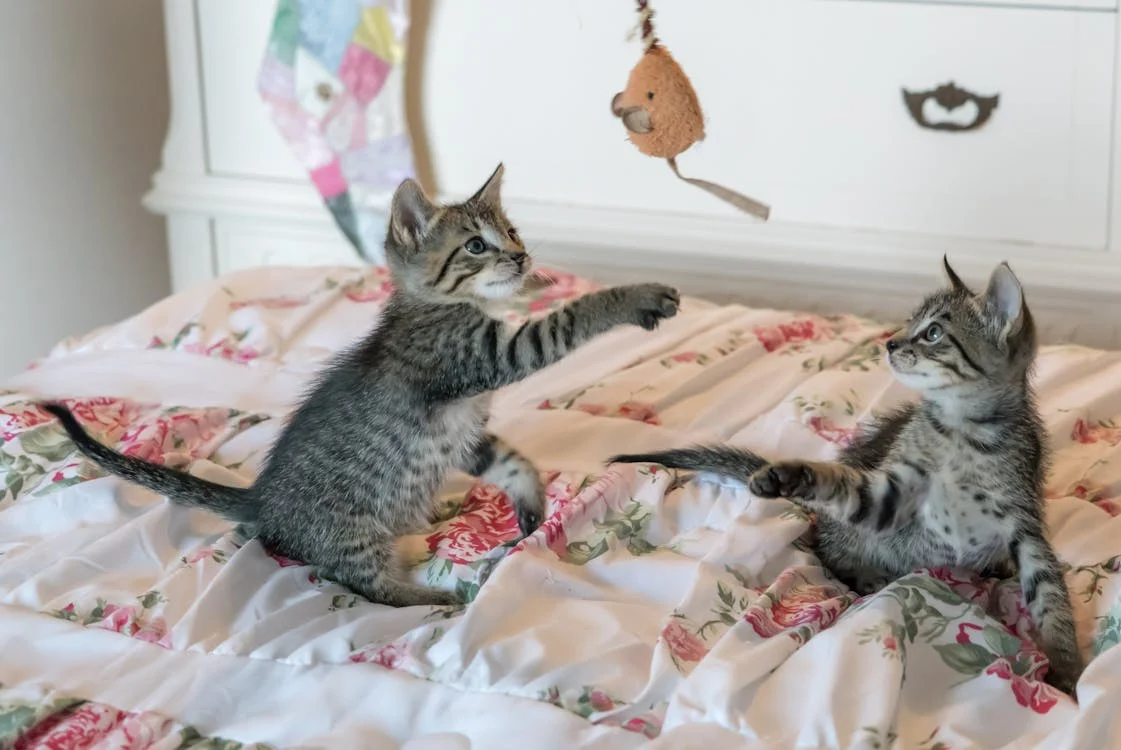
Photo courtesy of Pixabay via Pexels
Preparing pet-friendly rental homes
To transform your property into one that’s fit for animals, you’ll need to pet-proof it to prevent mishaps or long-term damage. Here are some tried and true tips to properly pet-proof your own property:
- Add basic balcony nets. If your unit has a balcony, consider installing a basic balcony net across the balusters. This simple safety precaution will keep your client’s animals safe from scary falls.
- Get durable upholstery. Wear and tear is inevitable when there are animals in the house. One surefire pet-proofing tip is to use durable, stain-proof upholstery such as leather, tightly woven fabrics, or thick canvas to prevent damage to furniture.
- Use trash cans with pet-proof lids. A trash can with this type of lid can easily stop wayward animals from getting into the garbage. It’s also a great bin type for storing away smelly trash or food waste.
While these safety precautions are important, you’ll also want to ensure that your home is comfy for animals too. Here are some fun ideas to create a friendly space in your unit:
- Designate condo play areas. Consider setting up an area in your home for your clients’ furry friends to play in, like a certain corner of the living room. This play area can house dog beds, cat trees, a fish tank, or other spaces for animals.
- Provide simple storage. Make sure to include accommodations for storage near these play areas. This is so that your tenants can neatly put away their fur baby’s toys, or even their own animal cleaning supplies.
- Add color to outdoor spaces. Instead of laying out plain rubber mats for tenants to use around their outside spaces, opt for colorful coverings and patterned mats instead. These can serve as stylish pet-friendly accessories that protect the surface of your balcony too.
Preparing your unit to be animal-friendly can be a fun process for home owners like you. Just remember to take note of the policies in the next section to protect your interests with your future clients too.

Photo courtesy of Alina Vilchenko via Pexels
Setting up policies for a pet-friendly condo for rent
It’s important that you establish clear policies with your future renters so that you can both enjoy a smooth and problem-free lease. Here are some ways for you to define a clear policy on animals as a lessor:
- Define the types of animals allowed. Review the house rules and regulations for your condo to see what types of animals are allowed within the premises. Common domesticated animals like dogs and cats are probably allowed, but make sure to check if companions like birds, rodents, fish, and even lizards are permitted too.
- Set weight and size limits. How big of an animal are you comfortable with having inside your home? Don’t be afraid to set a limit to the size and weight of your client’s companions, as this may imply the need for more maintenance and repairs for your unit.
- Establish behavior expectations. Remind your clients of basic pet owner responsibilities and establish your expectations for their companions’ behavior. This is to ensure that they enjoy a conflict-free lease with you and their neighbors in the condo.
Additionally, here are some fees and deposits that you can require from your renters, in case damages or conflicts do occur:
- Pet fees or deposits - A pet fee is a nonrefundable, one-time, upfront cost that you can charge clients to cover wear and tear from potential damages. Consider this fee if you think related repairs will be inevitable after your renter’s lease period.
- General security deposits - Aside from these specific fees, make sure to establish a good security deposit policy with your client so that future damages by their animal companions are also covered by this condo charge.
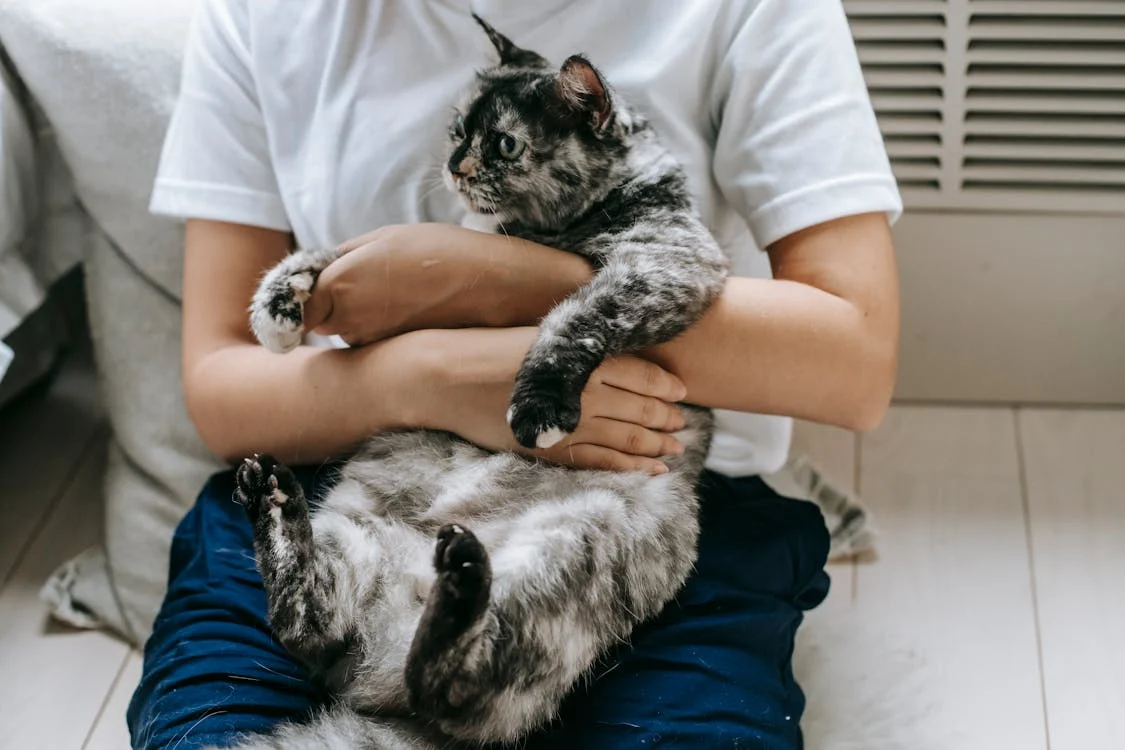
Photo courtesy of Sam Lion via Pexels
You should also require tenants to take out insurance for their fur babies while they live within the condo community. Here’s some reasons why this type of insurance is important for both your tenant and yourself:
- Pet-proofing doesn’t protect everything. While you can pet-proof your home, you can only do so much to prevent accidents and mishaps. Insurance will cover the safety of their companions within and outside the unit, especially if they interact with other neighbors.
- Insurance covers illness and wellness. If your client’s animal companions have preexisting conditions, get sick, or even just need general grooming and treatment, their insurance will help to cover these costs.
- Requiring insurance shows that you care. It’s a way to foster a good relationship with your tenant. By requiring this type of insurance from your renters, you’re showing that you care for all members of their family, big and small.
These policies exist to protect the interests of all parties - animals included. Now, before you start accepting new renters and their furry friends, make sure to check out the next section for tenant screening tips.
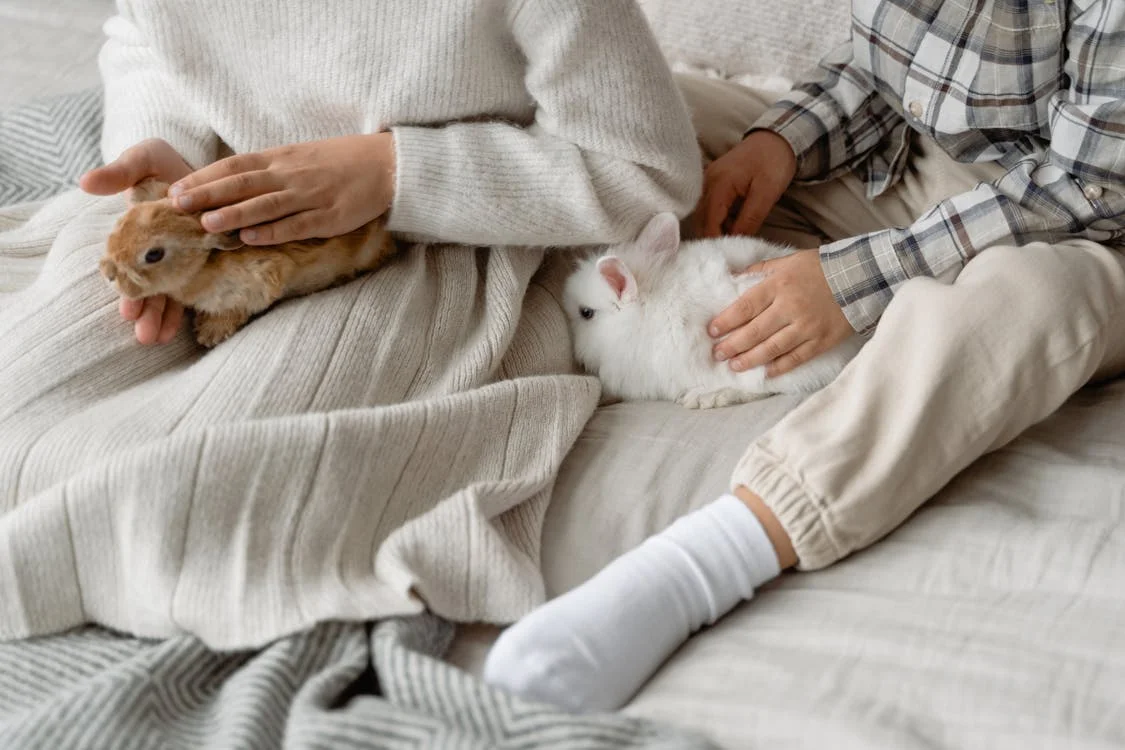
Photo courtesy of Tima Miroshnichenko via Pexels
Screening tenants and assessing lease agreements
As a property owner, you’ll need to know how to screen potential renters and their companions in order to set yourself up for leasing success. Here are some ways you can comprehensively screen owners with fur babies:
- Establish specific criteria. To find a condo tenant that’s responsible enough to handle your property, make sure to set specific criteria to weed out unqualified candidates. These can include their rental history, financial background, current workplace, and other important measures.
- Conduct face-to-face interviews, animals included. When you interview your prospective tenant, ask them to bring their animal companions too, so you can see how they behave and interact with family or with strangers.
- Ask for a pet resume. Yes, these exist. Ask your prospective client to write a resume of their fur baby’s breed, medical history, list of vaccinations, and best qualities, to ensure you have a document that validates their health, behavior, and compatibility with the rest of the condo community.
As a landlord, it will also be your responsibility to draft and assess the lease agreement for their rental. To draft a lease agreement with such owners, here are some tips:
- Include a pet-specific clause in the lease. Make sure to include this incredibly important clause in your monthly rental agreement so that the permission to bring an animal, the rules surrounding them, and the responsibilities per party are clearly communicated and legally binding.
- Specify your policies from the get-go. Important policies like fees, mandatory insurances, and other requirements should be clearly stated in the lease to avoid confusion or miscommunication during their lease.
- Detail the consequences for violations. Before either party signs the lease contract, discuss all potential violations in detail, including consequences like the forfeiture of their security deposit or risk of termination.
Screening tenants and drafting detailed contracts are crucial building blocks to a successful lease for all parties involved. Once you sign the agreement and turn the unit over to your tenants, remember to take note of the tips in the following section for proper maintenance and upkeep.
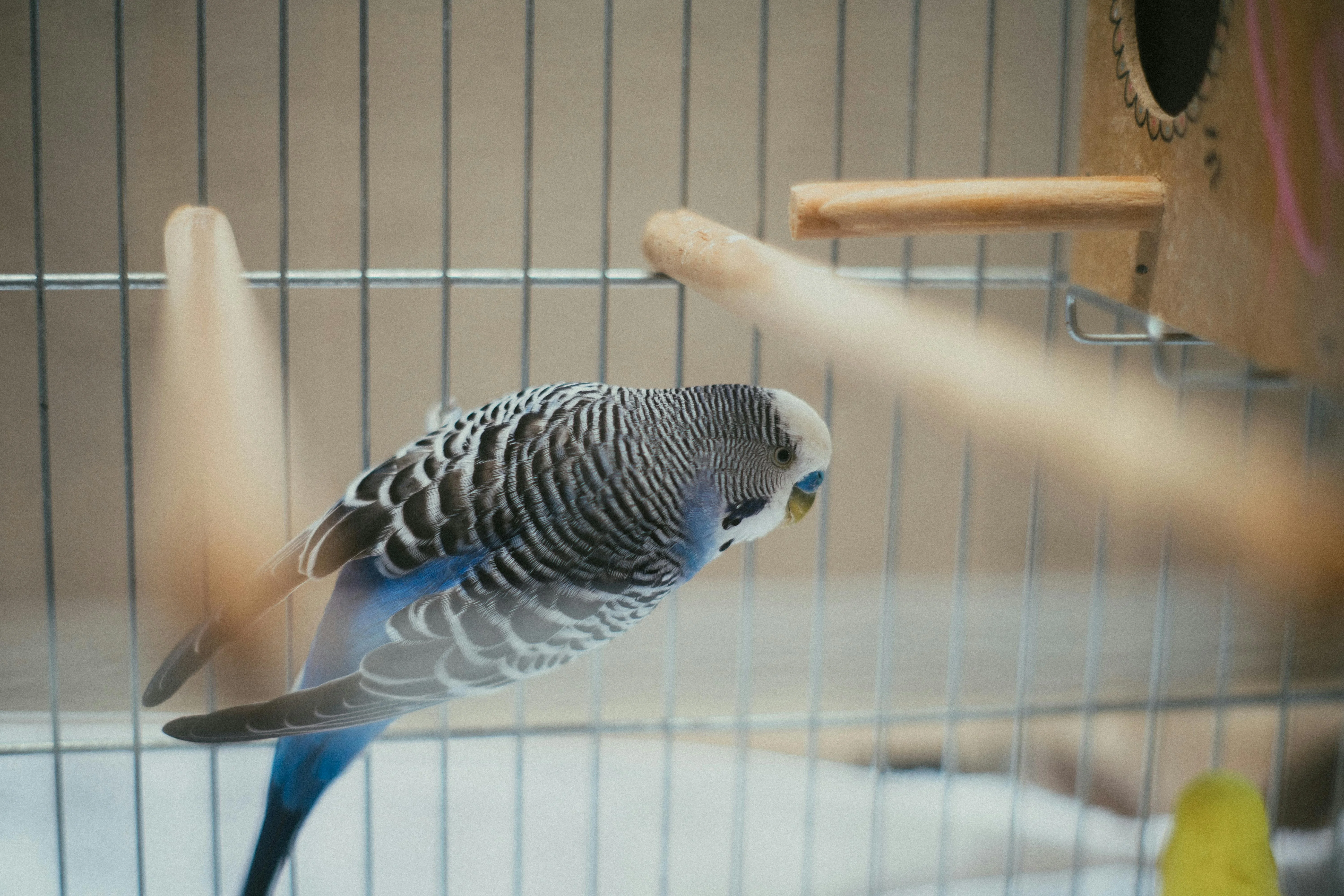
Photo courtesy of Murilo Folgosi via Pexels
Managing maintenance and upkeep
The management of your unit doesn’t end with the condo turnover. Remember to conduct the following landlord inspection checks regularly to ensure the upkeep of your unit:
- Upholstery maintenance - Check to see if the upholstery in your unit is free from cracks or scratches from rowdy animals and other potential sources of damage.
- Stain assessments - Make sure no wall and floor stains have been left behind either, whether from your tenants or their animal companions.
- Damage to wood furniture - Another part of your rental property maintenance list is your wood furniture. Some animals may chew on certain table legs or chairs, so you’ll need to reinforce them or replace them as time goes on.
Additionally, remind your residents of the following cleaning and sanitation practices too:
- Clean toys and food bowls regularly. Make sure they wash these items with soap and water often, especially if they’re made of easy-to-wash materials like metal or plastic. This practice will ensure that no smells or germs build up on their often used toys and food bowls.
- Use nature-friendly cleaning products. This greener living practice also protects your client’s animals from accidentally ingesting dangerous chemicals or hazardous cleaning products.
- Dispose of their waste properly. Remind them to dispose of their pet’s excrement whenever they go on walks, and make sure to put them in designated disposal containers across the condo property. This reduces smell and bacteria buildup within your unit.
Condo upkeep and maintenance are integral parts of a good landlord-tenant relationship. To ensure the upkeep of your client’s relationship with their community at large, continue on to the next section of this guide.
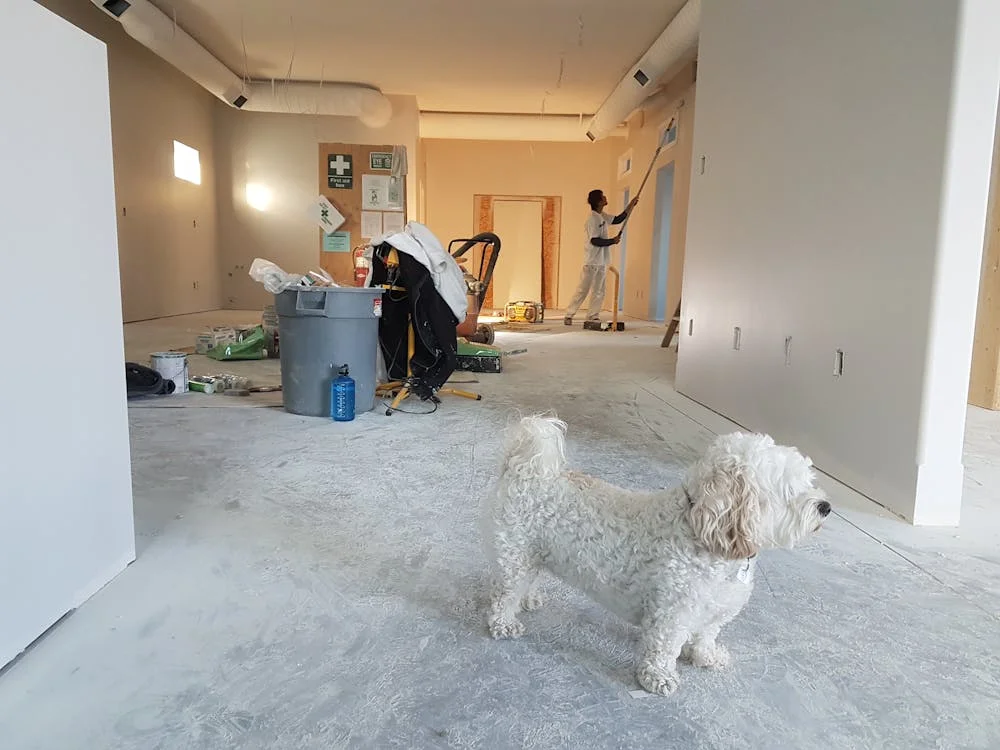
Photo courtesy of Cal David via Pexels
Building a pet-friendly community
A community that is open and welcoming to animals can be hard to find. But your tenants can definitely foster this kind of community by connecting with their neighbors and by being responsible fur parents, too.
Here are some ways you can encourage responsible ownership among your clients, for a friendly and welcoming community overall:
- Provide educational resources. These can include guides from animal welfare societies, invitations to related events, and more, to keep your tenants in the loop with animal care resources.
- Suggest pet-related community events. Fur parents can foster a strong sense of community living by hosting related events with fellow owners. As long as they get the right permissions, they can all hang out with their fur babies in the sprawling gardens of their DMCI Homes condo.
- Implement a process for reporting issues. Complaints from neighbors may come up during their lease. Make sure to provide renters with a way to quickly report such conflicts to you, so that you can mitigate them as necessary.
Of course, to avoid these problems with neighbors in the first place, make sure to screen your prospective residents well. As you open your home to fur parents and their babies, make sure to remind them of the rules so that they can practice responsible ownership in the long run.
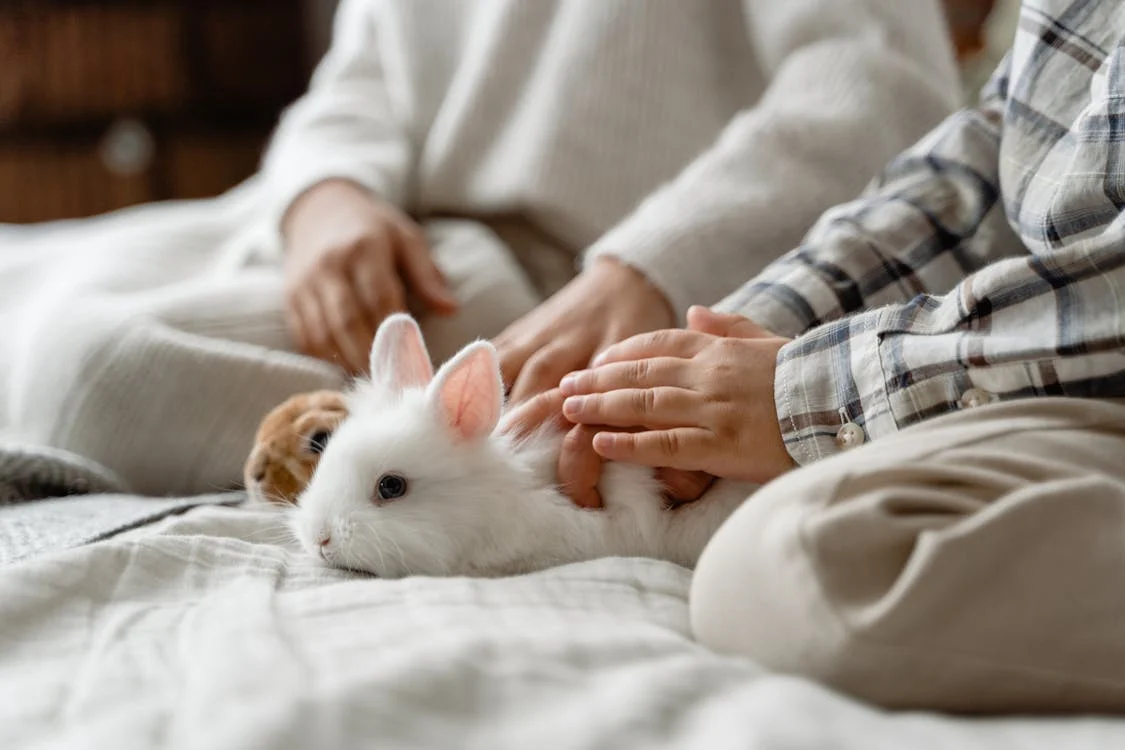
Photo courtesy of Tima Miroshnichenko via Pexels
To stay up-to-date on DMCI Homes Leasing options, remember to check out the DMCI Homes Leasing Blog and to follow our social media accounts too: Facebook, X, Instagram, and YouTube. Download the app on Google Play or App Store too, for even more updates.








